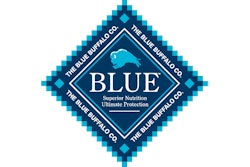
More than a year has passed since the United States Food and Drug Administration (FDA) announced that the agency found insufficient data to establish causality among pet food products and cases of dilated cardiomyopathy (DCM). Yet, the repercussions of the DCM investigation continue. On February 6, KetoNatural Pet Foods filed a proposed class action lawsuit against Hill’s Pet Nutrition. The lawsuit alleged that Hill’s and a group of veterinarians worked together to manipulate the FDA into examining the potential that certain grain-free dog foods increased pets’ risk for the heart disease, DCM. The plaintiff seeks US$2.6 billion in damages from Hill’s. The lawsuit was filed in the United States District Court for the District of Kansas.
“At its heart, the case alleges violations of the Lanham Act (our U.S. trademark statutes), and in particular its provisions that are directed to false or misleading advertising,” Michael Annis, partner with law firm Husch Blackwell, told Petfood Industry. “The alleged false statements are perpetuating and republishing the allegedly bad studies in Hill's marketing and promotional materials, including posting on its website.”
The lawsuit alleges that Hill’s orchestrated the reporting of DCM cases to the FDA using a network of veterinary researchers funded by Hill’s, including scientists at Tufts University. The alleged motivation was to undermine public trust in other pet food brands, including KetoNaturals, which is marketed as low-carbohydrate kibble. This conspiracy was allegedly intended to improve Hill’s sales and reverse the erosion of its market share by smaller pet food companies.
“The concept of filing of a lawsuit under the Lanham Act by one competitor against another for allegedly falsely representing the character or quality of your product or that of your competitors is grounded in sound legal theory,” Annis said. “The question here is do the allegations meet out the requirements for the causes of action plead.”
By instigating the FDA to investigate dog foods made with peas, lentils, other legume seeds or potatoes as main ingredients, the lawsuit suggested that Hill’s was attempting to add gravitas to the supposed connection among some dog food formulations and DCM, Annis said. He described this aspect of the plaintiff’s theory as akin to loading the ballot box at FDA’s Center for Veterinary Medicine’s reporting portal. The rush of reports would influence the FDA to investigate, which could then be publicized to pet owners. Just the existence of an investigation could draw a link in consumers’ minds between grain-free or non-traditional diets and DCM, although Hill’s allegedly knew there was no link proven by scientific research, according to the plaintiff's theory.
Reports to the FDA about DCM included Hill’s Pet Nutrition products as far back as 2013. Hill's does not seem to have been excluded from the FDA's focus, although the company had fewer cases reported.
"Hill's did not encourage an investigation of its own foods," Daniel Schulof, CEO of KetoNaturals, told Petfood industry. "At no point did Hill's or any of its co-conspirators ever encourage the FDA to investigate Hill's products. As the FOIA [Freedom of Information Act] evidence submitted with our complaint shows, the defendants only encouraged the FDA to investigate what the defendants came to describe as 'BEG' [boutique, exotic, grain-free] foods. And, because they misled the FDA using cherry-picked cases, they got exactly what they wanted -- when the FDA announced its investigation, it did not issue a generalized alert about canine DCM, it only alerted pet owners about "canine dilated cardiomyopathy (DCM) in dogs eating certain pet foods containing peas, lentils, other legume seeds, or potatoes as main ingredients."
Hill’s is owned by Colgate-Palmolive. In 2022, Hill’s annual revenue was approximately US$3,713 billion, according to Petfood Industry’s top companies database. This annual revenue made Hill’s the third largest pet food company on the planet, trailing Mars Pet Care and Nestle Purina Petcare.
“In the four years immediately preceding the launch of the FDA's investigation, Hill's lost 20% of its market share,” according to the lawsuit. “In the five years since the investigation began, it has been arguably the fastest growing pet food company in the country.”
In 2018, Hill’s annual revenue was approximately US$2,318 billion. Four years earlier, in 2013, the company’s annual revenue stood at US$2,211 billion.
History of the FDA investigation of DCM
In July 2018, the FDA publicly announced the agency’s investigation into correlations among dog foods and DCM cases. Federal authorities examined reports of DCM in dogs eating certain diets, especially those containing peas, lentils, other legume seeds, or potatoes as main ingredients, which were more common in formulations labeled as grain-free. A year later, the agency released data from their investigation that stated 93% of the 524 reported cases of DCM, involved dog foods made with peas and/or lentils, while 90% of the afflicted dogs had eaten diets labeled as grain-free.
Those reports included Hill’s Pet Nutrition products. One of these reports from 2013 involved an 8-year-old Dalmatian eating Hill's Prescription Diet u/d canned and dry dog food. Another report involved Hill's Ideal Balance Grain Free Chicken and Potato recipe.
The FDA received at least 1,382 reports of DCM from Jan. 1, 2014 to Nov. 1, 2022. However, most of those case reports clustered around the dates of FDA announcements about its investigation of correlations among grain-free dog foods and DCM.
Following the June 2019 FDA announcement of 16 dog food brands correlated to DCM cases, those brands experienced sales declines, said Natasha Davis, strategic client partner with Nielsen, during the Petfood R&D Showcase 2019 at Kansas State University in Manhattan, Kansas.
While several of the 16 brands were small, others were mid-sized or owned by large corporations. For example, Blue Buffalo ranked sixth on the FDA list with 31 cases of DCM reported among dogs consuming the brand’s products. In 2018, General Mills acquired Blue Buffalo. In 2022, General Mill’s annual revenue for its pet food division was approximately US$2,300,000,000 making it the fifth largest in the world, according to Petfood Industry’s top companies database. Similarly, Diamond Pet Food produced Taste of the Wild was third on the FDA list with 53 associated cases of DCM. Diamond Pet Food had the sixth-highest annual revenue on Petfood Industry’s top companies database at US$1,500,000,000 in 2022. The ninth brand on the FDA list with 16 DCM cases, Merrick, was owned by the second largest pet food producer on the planet, Nestle Purina PetCare.
Looking at the 16 brands’ grain-free dry dog food sales from mid-July 2019 through the first week of October, revenues in aggregate decreased about 10%, Davis said. At the same time, other dry dog food sales were increasing, rising from a down period in mid-2018 to slightly positive growth by early October 2019.
Despite the FDA investigation’s effect on the pet food market, scientists didn’t find evidence connecting certain diets to cases of DCM. More than 150 published studies didn’t reveal to researchers any firm connection among cases of canine dilated cardiomyopathy (DCM) and grain-free dog food. Veterinarians and others with BSM Partners, a pet industry consulting agency, published their review of existing scientific research on dog nutrition and its relationship to DCM in the Journal of Animal Science.
In December 2022, FDA investigators stated that they had insufficient data to establish causality among DCM case reports and pet food products eaten by afflicted dogs.
Ramifications of the lawsuit by KetoNaturals
The lawsuit against Hill’s Pet Nutrition by KetoNaturals was only filed a week ago, so it’s still early to make any predictions, Annis noted. Nevertheless, the outcome could have serious ramifications for Hill’s Pet Nutrition, the scientists named in the lawsuit and KetoNaturals Pet Foods.
If the allegations are ruled false, the veterinary researchers at Tufts University and other institutions could strike back. The lawsuit seems to allege that the veterinarians violated the law and committed a crime of moral turpitude like serious fraud, deceit or lying, Annis said.
“Professional reputations are being called into question here,” he said. “This is the type of claim that could wreck someone’s career.”
On the other hand, if the allegations are determined to be true, there could be several outcomes, Annis said. One is actual damages suffered by the plaintiff and other brands included in the class action.
“Whether the claims could ever satisfy class action requirements, particularly predominance, will undoubtedly be hotly contested,” he said.
“Class actions carry a number of additional pleading and proof burdens beyond those of the causes of action plead,” Annis said. “Two of which are that the claims are subject to common proofs and there are common questions of fact and law applicable to each plaintiff.
Another possibility is that Hill’s would be required to give up profits illegitimately gained from the alleged bad acts, a process known as disgorgement.
“The courts are not consistent in whether there has to be a causal relation between the bad act and the profit sought to be disgorged,” Annis said.
Another outcome in false advertising cases can be corrective advertising, he said. Hill’s would have to spend as much to put the genie back in the bottle as they spent to get it out in the public domain.
The case is still in its early stages, but both the defendants and the plaintiff seem ready to fight.
“Hill’s Pet Nutrition operates with the utmost integrity in all aspects of our business,” a Hill’s Pet Nutrition spokesperson told Petfood Industry. “We believe the allegations are without merit, and we will defend our position vigorously.”
Canine dilated cardiomyopathy heart disease
DCM affects dogs’ heart muscles. The disease results in an enlarged heart. As the heart and its chambers become dilated, pumping becomes more difficult and heart valves may leak, leading to a buildup of fluids in the chest and abdomen. DCM often results in congestive heart failure. Heart function may improve in cases that are not linked to genetics with appropriate veterinary treatment and dietary modification if caught early. Breeds that are typically more frequently affected by DCM include large and giant breed dogs, such as Great Danes, Boxers, Newfoundlands, Irish Wolfhounds, Saint Bernards and Doberman Pinschers. It is less common in small and medium breed dogs, except American and English Cocker Spaniels. Cases reported to the FDA included Golden and Labrador Retrievers, Whippets, a Shih Tzu, a Bulldog and Miniature Schnauzers, as well as mixed breeds.


















